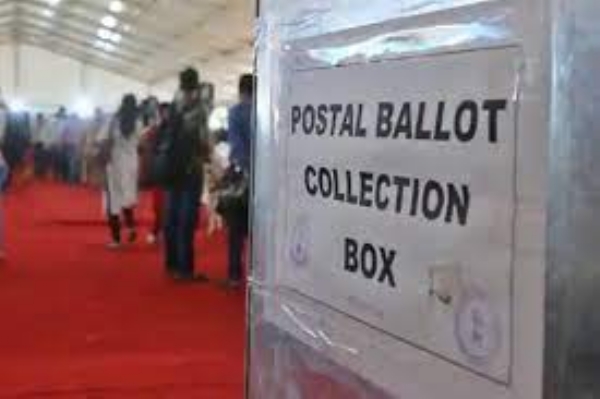Madras HC upholds EC order on voting through postal ballot
Total Views |
New Delhi, March 19: Ruling the order in the favour of the Election commission, Madras High court dismisses DMK's Plea challenging postal ballots provision in Representation of the People Act, RP Act and paves way for four 'absentee voter' classes to vote via postal ballot. The court has ruled the ordered to facilitate postal ballots for absentee voters including senior citizens of above 80 years, persons with disabilities, COVID-19 affected/ suspected and persons employed in essential services.

In the plea, the DMK petitioner contended that Section 60 (c) of the Representation of the People Act is against the basic feature of the constitution in as much as it violated the secrecy in voting.
While hearing the case the first bench of Chief Justice Sandip Banerjee and Justice Senthilkumar Ramamoorthy expressed its disinclination while disposing of a public interest writ petition from DMK, by its principal secretary K N Nehru.
In its ruling excessive court docket mentioned “it must be acknowledged that all that the Election Commission has done here is to be inclusive and allow certain classes of persons who would have been excluded from exercising their franchise the right to use the postal ballot and participate in the celebration of the festival of democracy”.
The Court did not find any arbitrariness in the classification of the persons committed by the rules of 1961 to cast their vote by postal ballot. It held, “60. Equally, there does not seem to be any arbitrariness in the classification of the persons permitted by the Rules of 1961 to cast their vote by postal ballot. The consideration appears to have been as to who may not be able to physically attend a polling booth to cast her vote. If such is the consideration, there is no arbitrariness in the classes of persons enumerated by the amendments of 2019 and 2020, particularly, as the object appears to be to afford such classes of persons their basic right to participate in the democratic process.”
The Bench rejected the contention that the Election Commission has no jurisdiction to issue guidelines in light of the "plenary authority" conferred on the Commission by Article 324 of the Constitution.
In the end, the court also observed that the experience gained in implementing the new system by the ECI will aid the authorities in refining it in future elections.
The commission started the optional postal ballot to some of these categories since the Jharkhand elections of 2019. In the 2020 Bihar General Elections, postal ballot options were extended to all these categories which were exercised by more than 52,000 such electors. In the on-going elections and bye-elections, Commission has already laid down detailed guidelines to facilitate postal ballot options for such categories of electors to make elections more inclusive, in line of its motto “No voter to be left behind”.
.
.